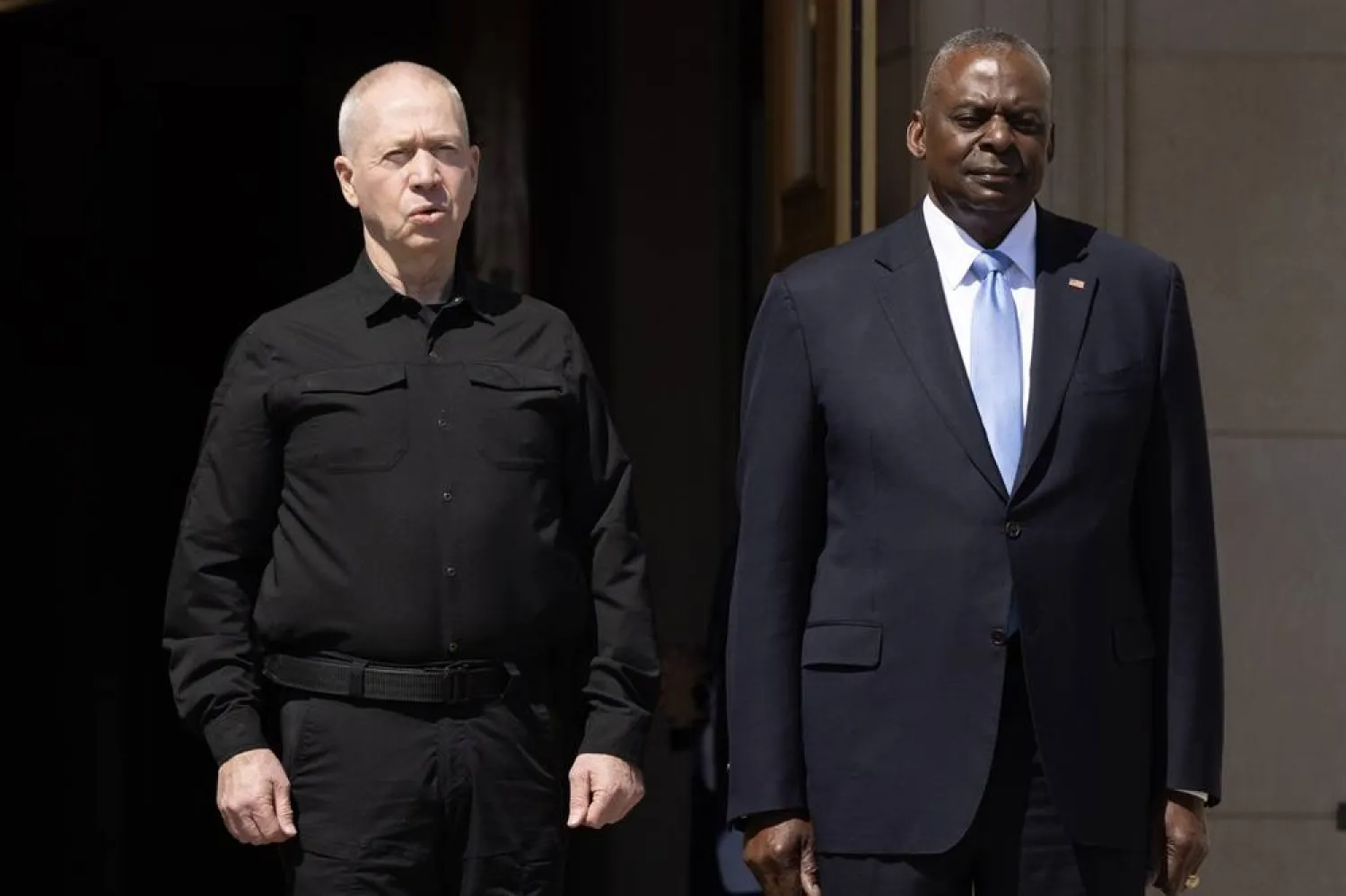Israeli Defense Minister Yoav Gallant said on Wednesday there had been significant progress made addressing the issue of US munitions supply to Israel during his meetings with Biden administration officials in Washington this week.
Gallant was wrapping up a visit to discuss the next phase of the Gaza war against Hamas, escalating hostilities with Hezbollah fighters on the border with Lebanon that have spurred fears of a wider conflict and shared US-Israeli concerns about Iran’s nuclear program.
He has also sought to cool tensions between the US and close ally Israel following Prime Minister Benjamin Netanyahu’s claims that Washington was withholding weapons, prompting US officials to express disappointment and confusion over the Israeli leader’s remarks.
"During the meetings we made significant progress, obstacles were removed and bottlenecks were addressed, in order to advance a variety of issues, and more specifically the topic of force build-up and munition supply that we must bring to the State of Israel," Gallant said in a statement.
Gallant's remarks came after a meeting on Wednesday with US national security adviser Jake Sullivan.
In a rare account of normally private diplomatic conversations, Netanyahu said earlier this month that he told visiting US Secretary of State Antony Blinken that it was "inconceivable" that in the past few months Washington was withholding weapons and ammunitions to Israel.
The United States in May paused a shipment of 2,000-pound and 500-pound bombs due to concern over the impact they could have in densely populated areas in Gaza but Israel was still due to get billions of dollars worth of US weaponry.
It was not immediately known whether Gallant's talk of progress on munitions indicated the US was ready to lift that pause.
Gallant also discussed with Sullivan "Israel's commitment to ensuring the safe return of Israeli communities to their homes in the north by changing the security reality in the area," the Israeli defense chief's office said.
Gallant on Tuesday met with Defense Secretary Lloyd Austin, who said the US was working urgently in pursuit of a diplomatic agreement to calm the situation on the Israel-Lebanon border between Israeli forces and Iran-backed Hezbollah fighters.
An exchange of shelling and missile strikes has led to the evacuation of tens of thousands of people on both sides of the border, and escalation has sparked fears of an all-out war in the area.
Gallant’s talks in Washington also focused on Iran, Israel’s regional arch-foe. He discussed with Sullivan the importance of cooperation "vis-a-vis Iranian aggression and its nuclear ambitions," Gallant's office said.
Iran says its nuclear program is solely for peaceful purposes.









